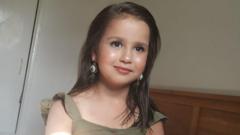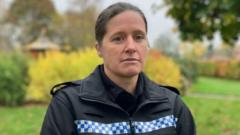
The Impact of Parental Imprisonment on Children: A Hidden Struggle
A recent BBC Radio 4 Woman’s Hour series has shed light on the profound challenges faced by children when a parent is imprisoned, revealing a complex and often overlooked social issue.
Kerry Wright’s personal experience illustrates the immediate challenges. At 17, her parents were arrested in Spain and subsequently extradited and jailed. She was left without support, unable to access the care system and forced to sofa-surf with only £100 to her name. Wright recalled the arresting officers seeming indifferent, with one casually discussing having a glass of wine after the arrest.
The social stigma surrounding parental imprisonment significantly impacts children. Wright described friends “dropping off” after media reports and feeling unable to discuss her situation without judgment.
According to Ministry of Justice figures released in July, more than 190,000 children in England and Wales had a parent in prison during a 12-month period. This is the first time such national data has been compiled, highlighting the scale of the issue.
The article shares multiple perspectives demonstrating the varied challenges these children face:
Emily, whose husband was imprisoned for crimes against her, struggled with her children’s emotional response. Her youngest child spoke about her father’s imprisonment in a school assembly, only to be told she couldn’t discuss it again to avoid “worrying other children.” Emily felt punished for a situation not of her making.
Another story involves Nan, who took responsibility for five grandchildren after her daughter was imprisoned. She described constant panic and felt that social services were more focused on obtaining parental responsibility than providing comprehensive support.
The charity Children Heard and Seen has been working to address these gaps. Founder Sarah Burrows revealed they’ve supported over 1,200 young people in ten years. In February 2023, they identified five children living alone following parental imprisonment, including a 15-year-old who had been alone for months.
Criminal justice consultant Lucy Baldwin emphasized the need for a “multi-agency response,” noting that even capable families might require additional emotional, practical, psychological, and educational support.
Emily advocated for better guidance at the point of sentencing, suggesting that children need to understand that imprisonment isn’t shameful or something to be embarrassed about.
The government acknowledges the challenge, with a spokesperson stating that growing up with a parent in prison can “have a devastating impact on a child’s life opportunities” and that they are taking measures to better identify and support these children.
The series highlights an urgent need for comprehensive support systems that recognize the complex emotional and practical challenges faced by children when a parent is imprisoned.









